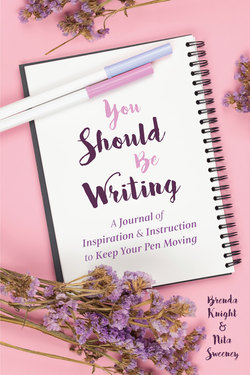Читать книгу You Should Be Writing - Nita Sweeney - Страница 5
На сайте Литреса книга снята с продажи.
ОглавлениеForeword
Your Pen Is Mightier
As an author, I have heard of and experienced truly frightening writerly maladies: page blindness, horror vacui (otherwise known as fear of the blank space), creative paralysis, inner critic overload, and, of course, the old standby—writer’s block. As a writer, I too have experienced many of these phases, the worst being muse abandonment.
How do word wranglers deal with this?
Proust took to his bed but, thankfully, nibbled madeleines dipped in lime tea, and thus Remembrance of Things Past poured forth. Voltaire drank as many as thirty to fifty cups of coffee a day, which surely must have left no time to tend his own garden. Female scribes including brilliants Marguerite Duras, Patricia Highsmith, Elizabeth Bishop, Jane Bowles, Anne Sexton, Carson McCullers, Dorothy Parker, and Shirley Jackson were known to imbibe as well.
Franz Kafka once complained, “How time flies; another ten days and I have achieved nothing. It doesn’t come off. A page now and then is successful, but I can’t keep it up; the next day I am powerless.”
I subscribe to the Jack London school of daily effort. London believed that writing daily was the best way to rouse the sleeping Muse. He advised, “Set yourself a ‘stint,’ and see that you do that ‘stint’ each day; you will have more words to your credit at the end of the year.”
I also agree wholeheartedly with Maya Angelou to just keep at it. “The trick is not to overthink it. Write nonsense if you have to. But keep writing, no matter if you’re pleased with the final result or not.”
Toni Morrison believed in establishing a ritual for your writing time—be it music, coffee, a certain time of day or whatever works for you.
Stephen King offered a cautionary tale about the perils of writer’s block with his memorable novel, The Shining. And, this much is true, all work and no play makes any of us quite dull.
But do not despair. Before you pick up your axe or start talking to ghosts, try a more spirited approach to getting inspired and journal. Or doodle, make lists, or jot down your dreams.
Hillary Mantel, author of Wolf Hall, among her excellent works, may well offer the most helpful advice of all.
If you get stuck, get away from your desk. Take a walk, take a bath, go to sleep, make a pie, draw, listen to music, meditate, exercise; whatever you do, don’t just stick there scowling at the problem. But don’t make telephone calls or go to a party; if you do, other people’s words will pour in where your lost words should be. Open a gap for them, create a space. Be patient.
This journal is intended to be a place for you to get away and explore the outer reaches of your immense imagination.
It may also help to remember the immense power of writing. A writer’s great gift is the ability to transmogrify experience even as a host becomes the Body of Christ, if you will indulge my Irish Catholic sensibilities for a moment.
One can uplift, inspire, console, and commune with one’s words, or one can denigrate, depress, alarm, or alienate. I choose my words carefully and try to be an apprentice of the first way. It’s easier to do in writing because one has time to think before blurting out some unkind missive.
As my sophomore year journalism teacher, Sister Michael David, BVM, once told her eager students, “Choose your words carefully; they are a matter of life and death.” She then proved her point by telling us that when Queen Victoria wanted to quell a revolution in Ireland, she rounded up all the poets and writers and hung them—that’s how powerful one’s words can be to the world.
Warmly,
Becca Anderson
